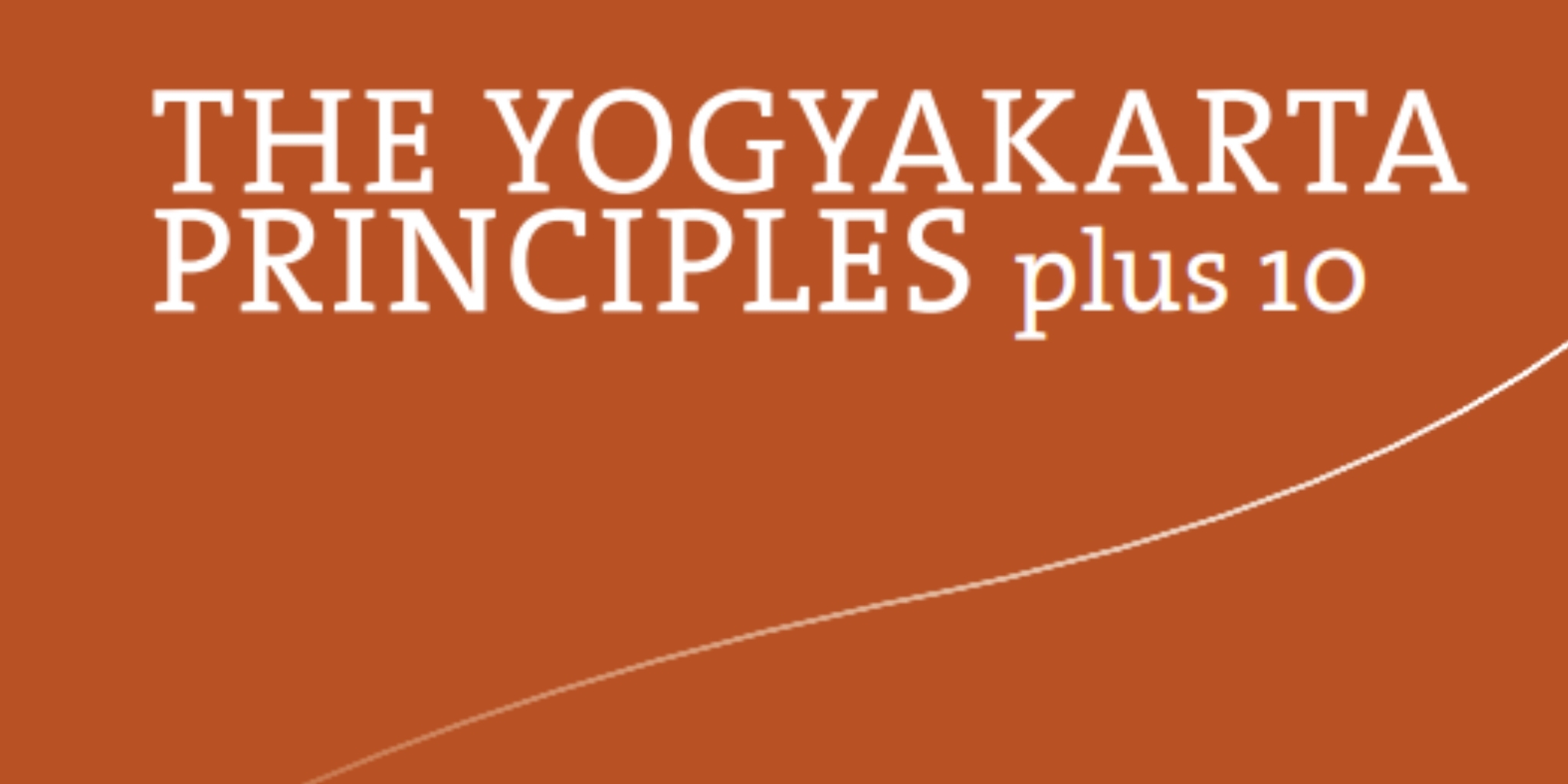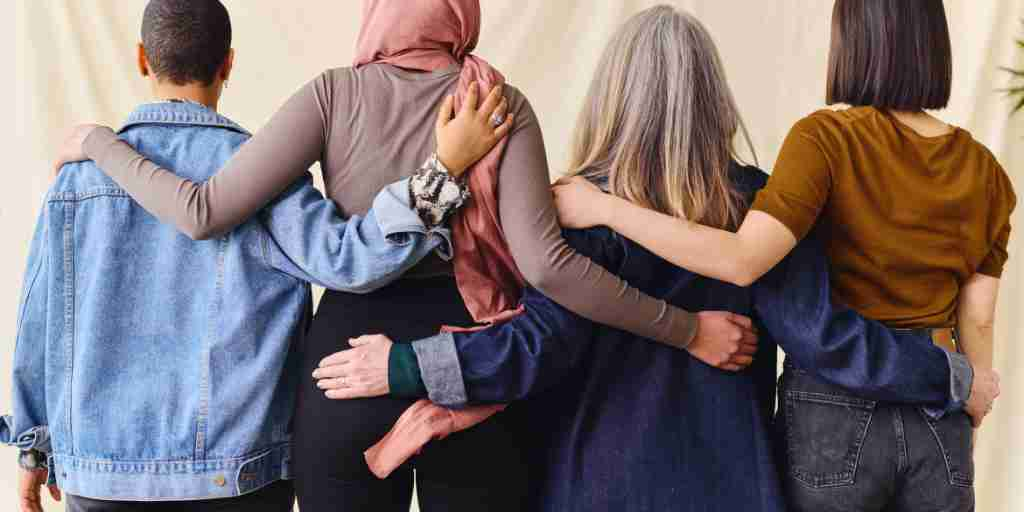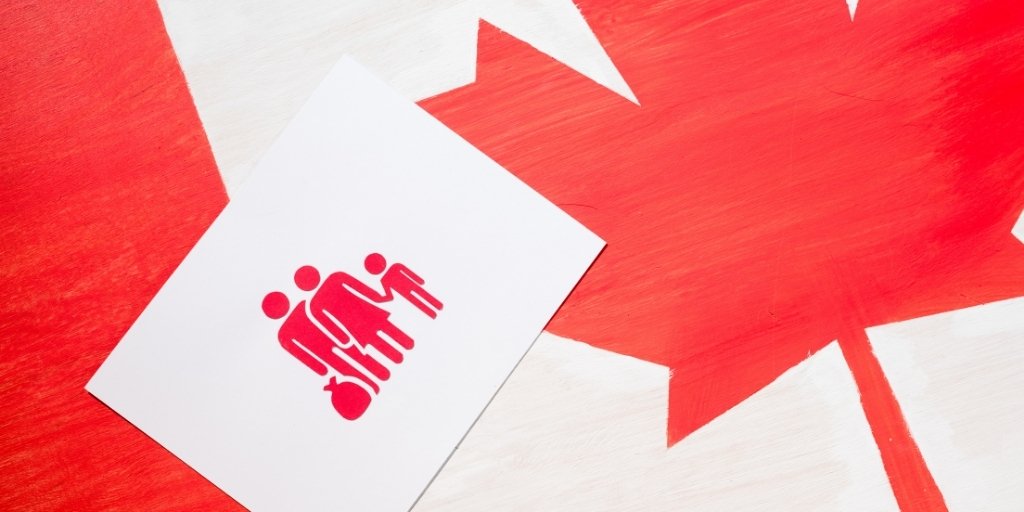The Yogyakarta Principles plus 10 (YP+10) are an expansion and update of the original Yogyakarta Principles, adopted in 2017. They include 9 additional principles and 111 additional state obligations, addressing new challenges and further refining the application of international human rights law in relation to sexual orientation, gender identity, gender expression, and sex characteristics (SOGIESC).
Here is a summary of each additional principle:
- Right to State Protection: Everyone has the right to state protection, including effective protection from violence, discrimination, and other harm based on sexual orientation, gender identity, gender expression, or sex characteristics (SOGIESC). States should take all necessary measures to ensure the safety and security of individuals facing these risks.
- Right to Legal Recognition: Individuals have the right to recognition before the law based on their self-defined gender identity. This principle advocates for legal recognition of gender identity without abusive requirements, such as forced sterilization, medical procedures, or divorce.
- Right to Freedom from Criminalization and Sanction: No one should be criminalized or otherwise punished for their sexual orientation, gender identity, gender expression, or sex characteristics. States should repeal laws that criminalize these aspects of identity, including laws against same-sex relationships, cross-dressing, and those that penalize individuals based on their SOGIESC.
- Right to Sanitation: Everyone has the right to access safe and adequate sanitation facilities without discrimination. States should ensure that sanitation services, including toilets and hygiene products, are accessible and inclusive of all gender identities and expressions.
- Right to the Enjoyment of Human Rights in Relation to Information and Communication Technologies: Individuals have the right to enjoy human rights in the context of information and communication technologies (ICT). This includes the right to freedom of expression, privacy, and protection from cyberbullying and other online abuses based on SOGIESC.
- Right to Truth: Everyone has the right to truth regarding violations of human rights related to SOGIESC. This principle calls for the acknowledgment and documentation of such violations, ensuring that victims receive justice and reparation.
- Right to Practice, Protect, Preserve, and Revive Cultural Diversity: Individuals and communities have the right to practice, protect, preserve, and revive their cultural heritage and traditions, free from discrimination based on SOGIESC. States should respect and promote cultural diversity while ensuring the rights of LGBTQ+ individuals.
- Right to Protection from Poverty: States should take effective measures to eliminate poverty and ensure that all individuals, regardless of SOGIESC, have access to an adequate standard of living. This includes access to housing, healthcare, education, and social services.
- Right to the Protection from the Impact of Disasters and Emergencies: Individuals have the right to protection from the impacts of disasters and emergencies, including those exacerbated by climate change. States should ensure that disaster response and recovery efforts are inclusive and address the specific needs of individuals based on SOGIESC.
These additional principles in YP+10 aim to address emerging human rights challenges and ensure that protections are more comprehensive and inclusive for LGBTQ+ individuals worldwide.
ADDITIONAL STATE OBLIGATION
The Additional State Obligations section in the Yogyakarta Principles plus 10 (YP+10) expands on the original Yogyakarta Principles by providing specific and detailed obligations that states must fulfill to protect and promote the human rights of individuals based on sexual orientation, gender identity, gender expression, and sex characteristics (SOGIESC). These obligations are designed to address emerging challenges and to ensure comprehensive protection of human rights in the evolving global context.
Here’s an overview of the key obligations included in the Additional State Obligations section:
- Combating Criminalization and Protecting Against Violence:
- Repeal Criminal Laws: States must repeal laws that criminalize consensual same-sex conduct, gender identity or expression, and diverse sex characteristics.
- Prevent Violence: Implement measures to prevent, investigate, and punish all forms of violence, including hate crimes, against individuals based on SOGIESC.
- Support Victims: Provide support, including medical, psychological, and legal assistance, to victims of violence based on SOGIESC.
- Legal Recognition of Gender Identity:
- Ensure Legal Recognition: States must ensure that individuals can obtain legal recognition of their gender identity through simple, accessible, and transparent procedures, based on self-determination.
- No Coercive Requirements: Legal recognition should not require individuals to undergo medical procedures, divorce, or other coercive requirements.
- Access to Justice:
- Equal Access: Ensure that all individuals, regardless of SOGIESC, have equal access to justice, including the right to a fair trial and effective remedies.
- Training for Law Enforcement: Provide training for law enforcement, judicial, and other relevant personnel on the rights and needs of individuals based on SOGIESC.
- Protection from Discrimination:
- Anti-Discrimination Laws: Enact comprehensive anti-discrimination laws that explicitly include protections based on SOGIESC in all areas of public and private life, including employment, education, housing, healthcare, and social services.
- Promote Equality: Promote equality and non-discrimination through public education and awareness campaigns, and ensure that discriminatory practices are addressed and remedied.
- Health and Well-Being:
- Access to Healthcare: Ensure that all individuals have access to healthcare without discrimination based on SOGIESC, including sexual and reproductive health services.
- Prohibit Conversion Practices: Ban so-called “conversion therapies” or other medical practices aimed at changing an individual’s sexual orientation, gender identity, or expression.
- Protection of Children and Youth:
- Protect from Harm: States must protect children and youth from violence, exploitation, and discrimination based on SOGIESC, including in educational settings.
- Support for LGBTQ+ Youth: Provide supportive environments and resources for LGBTQ+ youth, including access to information, counseling, and peer support.
- Freedom of Expression, Association, and Assembly:
- Support Advocacy: Protect the rights of individuals and organizations to advocate for SOGIESC-related issues, and ensure they can operate freely without fear of repression.
- Safe Public Spaces: Guarantee that public spaces are safe and accessible for individuals to express their identities and assemble peacefully.
- Right to Privacy:
- Protect Privacy: Ensure that individuals’ privacy is respected in all contexts, particularly concerning their SOGIESC, and protect against unlawful or arbitrary interference.
- Cultural and Religious Rights:
- Respect Cultural Diversity: Recognize and respect the cultural and religious rights of individuals, ensuring that these rights are not used to justify discrimination or violence against individuals based on SOGIESC.
- Addressing Intersectional Discrimination:
- Recognize Intersectionality: States must recognize and address the multiple and intersecting forms of discrimination that individuals may face based on SOGIESC in combination with other factors such as race, ethnicity, disability, religion, and socio-economic status.
- Protection in Emergencies and Disasters:
- Inclusive Responses: Ensure that disaster and emergency response plans are inclusive and take into account the specific needs of individuals based on SOGIESC.
- International Cooperation:
- Promote Global Standards: States should work towards the international promotion and protection of human rights standards related to SOGIESC, including through international organizations and agreements.
These additional state obligations are intended to enhance the protection of human rights for LGBTQ+ individuals and ensure that states are held accountable for upholding these rights in a comprehensive and inclusive manner.
ADDITIONAL RECOMMENDATIONS
The Additional Recommendations section in the Yogyakarta Principles plus 10 (YP+10) builds on the original Yogyakarta Principles by offering further guidance to various stakeholders on how to promote and protect the rights of individuals based on sexual orientation, gender identity, gender expression, and sex characteristics (SOGIESC). These recommendations are directed at states, international organizations, national human rights institutions, the media, non-governmental organizations, and other relevant actors. Here’s an overview of these recommendations:
For States:
- Strengthen Legal Frameworks:
- States should strengthen legal frameworks to fully recognize and protect the rights of individuals based on SOGIESC. This includes adopting and implementing laws and policies that reflect the principles outlined in YP+10.
- Ensure Effective Implementation:
- States should ensure the effective implementation of existing laws and policies that protect the rights of individuals based on SOGIESC. This includes providing adequate resources, training, and oversight mechanisms.
- Foster Inclusive Societies:
- States should actively promote social inclusion and acceptance of diverse sexual orientations, gender identities, gender expressions, and sex characteristics. This includes public education campaigns, anti-bullying initiatives, and measures to combat hate speech.
- Monitor and Report:
- States should establish mechanisms to monitor and report on the human rights situation of individuals based on SOGIESC, ensuring accountability for violations and providing redress to victims.
For International Organizations:
- Mainstream SOGIESC in Human Rights Work:
- International organizations, including the United Nations, should integrate SOGIESC issues into their human rights work, development programs, and humanitarian efforts.
- Support Member States:
- These organizations should provide technical assistance, capacity building, and resources to member states to help them fulfill their obligations under YP+10.
- Facilitate Cooperation:
- International organizations should facilitate cooperation between states, civil society, and other stakeholders to promote and protect the rights of individuals based on SOGIESC.
For National Human Rights Institutions (NHRIs):
- Promote and Protect SOGIESC Rights:
- NHRIs should actively promote and protect the rights of individuals based on SOGIESC within their mandate. This includes monitoring human rights violations, advocating for legal reforms, and providing support to victims.
- Engage with Communities:
- NHRIs should engage with LGBTQ+ communities and other marginalized groups to better understand their needs and to ensure their voices are heard in decision-making processes.
- Raise Awareness:
- NHRIs should conduct public education campaigns to raise awareness of SOGIESC rights and combat discrimination and stigma.
For the Media:
- Promote Accurate and Respectful Coverage:
- The media should promote accurate, respectful, and non-stereotypical coverage of issues related to sexual orientation, gender identity, gender expression, and sex characteristics.
- Raise Awareness:
- The media should play a role in raising awareness about the human rights of individuals based on SOGIESC and in challenging harmful narratives and misinformation.
For Non-Governmental Organizations (NGOs):
- Advocate for Legal and Policy Reforms:
- NGOs should advocate for the adoption and implementation of laws and policies that protect the rights of individuals based on SOGIESC. This includes lobbying governments, raising awareness, and providing expert input on legal reforms.
- Provide Support Services:
- NGOs should provide support services, including legal aid, counseling, and advocacy, to individuals facing discrimination, violence, or other human rights violations based on SOGIESC.
- Build Alliances:
- NGOs should build alliances with other human rights organizations, community groups, and stakeholders to strengthen their advocacy efforts and promote a more inclusive human rights framework.
For Other Relevant Actors:
- Engage in Advocacy:
- Religious, cultural, and community leaders, as well as private sector entities, should engage in advocacy efforts to promote the rights of individuals based on SOGIESC and to challenge discrimination and prejudice.
- Promote Inclusivity in Workplaces:
- Employers and businesses should adopt inclusive policies and practices that respect the rights of employees and customers based on SOGIESC, ensuring a safe and supportive environment for all.
- Support Research and Data Collection:
- Academic institutions and research organizations should support research and data collection on issues related to SOGIESC, providing evidence to inform policy and advocacy efforts.
These additional recommendations in YP+10 are designed to ensure that the expanded principles are effectively implemented and that the rights of individuals based on sexual orientation, gender identity, gender expression, and sex characteristics are fully respected, protected, and fulfilled across all sectors of society.




